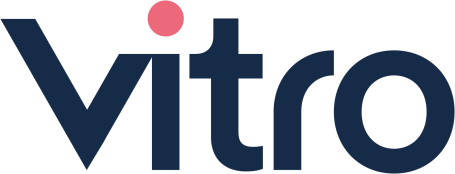
Skills-based organisation: Unlocking access to broader capabilities
In an organisational structure an employee's role and responsibilities are typically defined by job titles and hierarchies. However, what if we shift our focus from job titles to the skills employees possess? By adopting a skills-based approach organisations can tap into a range of capabilities and cultivate a more adaptable workforce. This article explores the advantages of embracing a skills-based organisation and offers insights on addressing implementation challenges.
We suggest focusing on three areas if you're just starting out.
- First and foremost, it's important for your skills strategy to be anchored at a senior level and implemented through learning and development teams in promoting the value of skills-based learning within the workplace.
- Secondly, provide resources and tools to support the reasoning and physical capture needs of employee’s skills. HRIS (Human Resources Information System) platforms and Learning Management Platforms offer integrated tools that can be utilised effectively. If that’s not available there are offline models and templates which can work wonders in getting people started on their skills-based journey (great example of a free one here). Either way embracing these learning tools will greatly accelerate the transition towards a skills-based organisation.
- Thirdly, make use of your existing tools, such as machine learning to leverage and push current content as well as to create gentle nudges and creative campaigns about skills.
Technology gives employees the power to acquire the skills needed for their roles and it’s equally important to direct this to specific audiences, such as line managers.
Line managers will find it highly valuable to put a skills matrix into action because this will help them identify skill gaps and suggest training to fill those gaps. By working with managers and employees your teams can pinpoint areas that require skills improvement and develop training plans accordingly.
About the author
Dieter Deuer
Dieter is our Head of Technology and Innovation, he utilises his strategic leadership skills in Learning and HR to enhance the learning experience through streamlining processes. With over twenty years of expertise, Dieter has played a crucial role in harnessing technology to advance learning.

By Dieter Deuer
How skills-based organisations create diverse capabilities
In a skills-based organisation the emphasis lies on valuing employees for their skill sets rather than solely relying on job titles. This creates an environment where the workforce can easily adapt and be deployed across projects or teams that are based on their individual skills versus organisational needs. By breaking down department silos and prioritising skill sets we can foster cross functional interactions and collaboration enabling organisations to access a broader range of capabilities.
How to define required skills for roles
When it comes to implementing a skills-based organisation, there is a challenge in defining the required skills for roles. To overcome this hurdle, it is important to establish a shared understanding of your skill terminology. Moreover, providing training to both employees and managers on how to identify, assess and evaluate these skills is crucial for the success of this model. For example, power skills are daily skills you want every employee to possess such as using PowerPoint. If you outline your power skills as a base threshold either at an organisational level or team level the overall value for the employee and employer becomes recognisable as an OKR (Objectives and Key Results) or ROI (Return on Investment).
Thinking outside the box
Ultimately, the tools we use are secondary compared to our ability to be agile in deploying resources based on fluctuating demands across operations. This agility depends not only on skills, but also on capabilities, knowledge in specific subjects, processes, products, and services. We end up with a range of subjects where having a shared understanding of proficiency levels (even if self-assessed) could facilitate more meaningful discussions and move from traditional organisational designs to an entire new look and feel! So, consider whether it’s appropriate to limit your matrix to just skills!
Taking the first steps
Taking the first steps
Taking the first steps
Taking the first steps
Conclusion
In our current economic environment embracing a skills-based model helps to unlocks access to capabilities, encourage a cross functional collaboration, and cultivate an adaptive workforce.
Overcoming challenges along this journey and remaining focused on your goal will reap benefits of a workforce full of talent and versatile skilling.
At Vitro we have a real passion for this topic as technology supports the enablement of organisational change whilst empowering your employees to embrace self-development and change. So, as always, don’t let best get in the way of better, and if you need to chat about it reach out!
We need your consent to load the translations
We use a third-party service to translate the website content that may collect data about your activity. Please review the details in the privacy policy and accept the service to view the translations.

